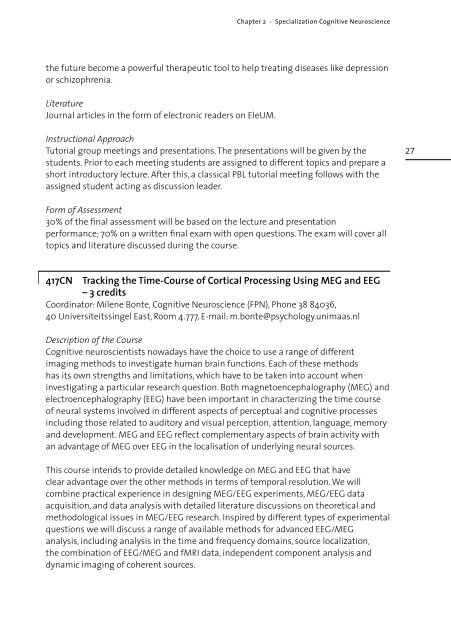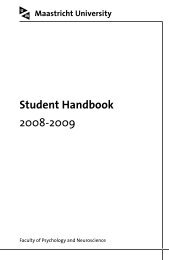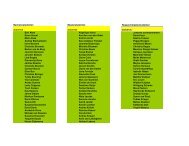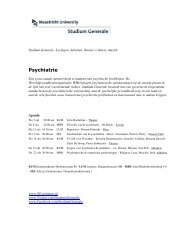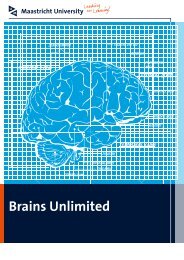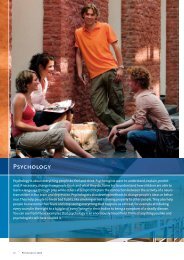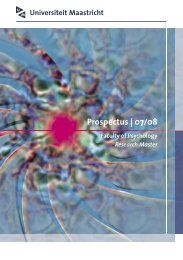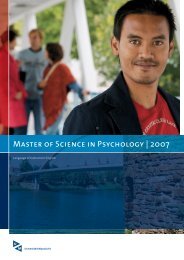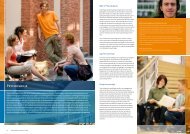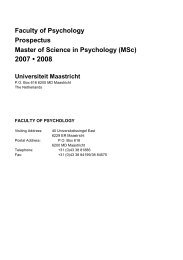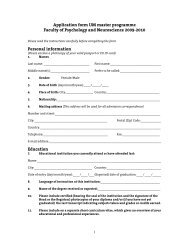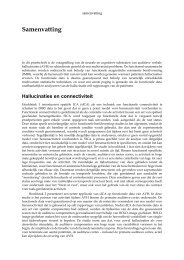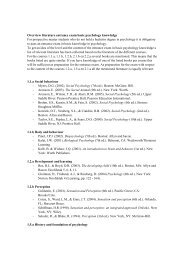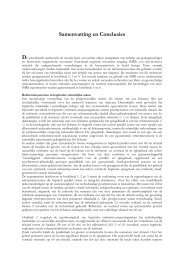Prospectus | 08/09 - Psychology and Neuroscience - Maastricht ...
Prospectus | 08/09 - Psychology and Neuroscience - Maastricht ...
Prospectus | 08/09 - Psychology and Neuroscience - Maastricht ...
You also want an ePaper? Increase the reach of your titles
YUMPU automatically turns print PDFs into web optimized ePapers that Google loves.
Chapter 2 - Specialization Cognitive <strong>Neuroscience</strong><br />
the future become a powerful therapeutic tool to help treating diseases like depression<br />
or schizophrenia.<br />
Literature<br />
Journal articles in the form of electronic readers on EleUM.<br />
Instructional Approach<br />
Tutorial group meetings <strong>and</strong> presentations. The presentations will be given by the<br />
students. Prior to each meeting students are assigned to different topics <strong>and</strong> prepare a<br />
short introductory lecture. After this, a classical PBL tutorial meeting follows with the<br />
assigned student acting as discussion leader.<br />
27<br />
Form of Assessment<br />
30% of the final assessment will be based on the lecture <strong>and</strong> presentation<br />
performance; 70% on a written final exam with open questions. The exam will cover all<br />
topics <strong>and</strong> literature discussed during the course.<br />
| 417CN Tracking the Time-Course of Cortical Processing Using MEG <strong>and</strong> EEG<br />
– 3 credits<br />
Coordinator: Milene Bonte, Cognitive <strong>Neuroscience</strong> (FPN), Phone 38 84036,<br />
40 Universiteitssingel East, Room 4.777, E-mail: m.bonte@psychology.unimaas.nl<br />
Description of the Course<br />
Cognitive neuroscientists nowadays have the choice to use a range of different<br />
imaging methods to investigate human brain functions. Each of these methods<br />
has its own strengths <strong>and</strong> limitations, which have to be taken into account when<br />
investigating a particular research question. Both magnetoencephalography (MEG) <strong>and</strong><br />
electroencephalography (EEG) have been important in characterizing the time course<br />
of neural systems involved in different aspects of perceptual <strong>and</strong> cognitive processes<br />
including those related to auditory <strong>and</strong> visual perception, attention, language, memory<br />
<strong>and</strong> development. MEG <strong>and</strong> EEG reflect complementary aspects of brain activity with<br />
an advantage of MEG over EEG in the localisation of underlying neural sources.<br />
This course intends to provide detailed knowledge on MEG <strong>and</strong> EEG that have<br />
clear advantage over the other methods in terms of temporal resolution. We will<br />
combine practical experience in designing MEG/EEG experiments, MEG/EEG data<br />
acquisition, <strong>and</strong> data analysis with detailed literature discussions on theoretical <strong>and</strong><br />
methodological issues in MEG/EEG research. Inspired by different types of experimental<br />
questions we will discuss a range of available methods for advanced EEG/MEG<br />
analysis, including analysis in the time <strong>and</strong> frequency domains, source localization,<br />
the combination of EEG/MEG <strong>and</strong> fMRI data, independent component analysis <strong>and</strong><br />
dynamic imaging of coherent sources.


